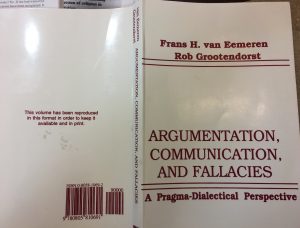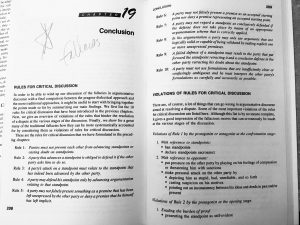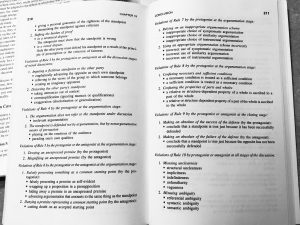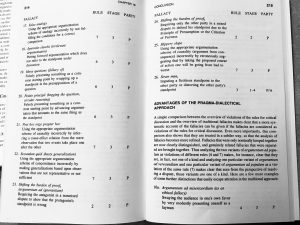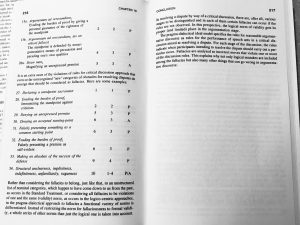By Kelly Gerling—April 23, 2018
In 1992, Frans van Eemeren and Rob Grootendorst wrote a book titled:
“Argumentation, Communication and Fallacies: A Pragma-dialectical Perspective.”
They summarized 10 rules for conducting critical discussions with a number of very good point of elaboration to explain each rule and the fallacies each tended to prevent.
For anyone who wants to engage in critical discussions, critical decision-making, in accordance with perhaps the most advanced methods that exist in the field of argumentation and debate, I recommend this highly. It is much easier to identify and apply 10 rules to use rather than to identify and reject dozens of fallacies.
These ideas are fabulous. I recommend the entire book as well.
Here are the 10 rules from pages 208-209:
The Ten Rules for a Critical Discussion by Pragma-Dialectics
1. Freedom rule
Parties must not prevent each other from advancing standpoints or from casting doubt on standpoints.
2. Burden of proof rule
A party that advances a standpoint is obliged to defend it if asked by the other party to do so.
3. Standpoint rule
A party’s attack on a standpoint must relate to the standpoint that has indeed been advanced by the other party.
4. Relevance rule
A party may defend a standpoint only by advancing argumentation relating to that standpoint.
5. Unexpressed premise rule
A party may not deny premise that he or she has left implicit or falsely present something as a premise that has been left unexpressed by the other party.
6. Starting point rule
A party may not falsely present a premise as an accepted starting point nor deny a premise representing an accepted starting point.
7. Argument scheme rule
A party may not regard a standpoint as conclusively defended if the defense does not take place by means of an appropriate argumentation scheme that is correctly applied.
8. Validity rule
A party may only use arguments in its argumentation that are logically valid or capable of being made logically valid by making explicit one or more unexpressed premises.
9. Closure rule
A failed defense of a standpoint must result in the party that put forward the standpoint retracting it and a conclusive defense of the standpoint must result in the other party retracting its doubt about the standpoint.
10. Usage rule
A party must not use formulations that are insufficiently clear or confusingly ambiguous and a party must interpret the other party’s formulations as carefully and accurately as possible.
Also referenced in the Wikipedia Article on Pragma-Dialectics
Here are six pages that describe these rules and how to apply them:

